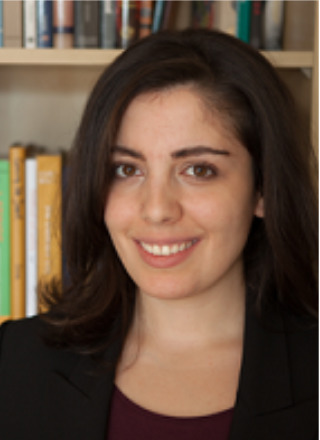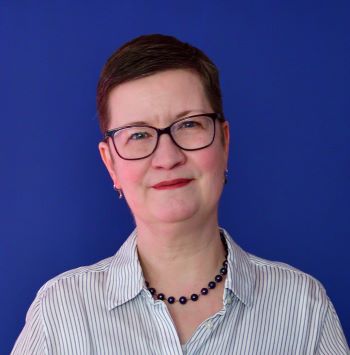Keynote Address

Dr. Lene A. Jensen
Understanding Emerging Adults in Today’s Global World: The Cultural-Developmental Approach
The cultural-developmental approach addresses both cultural diversity and universality in psychological development. It is an alternative to the one-size-fits-all theories prominent in the 20th century. This keynote will describe the approach with a focus on research with emerging adults, including suggestions for future research directions.
BIO: Lene Arnett Jensen is Senior Research Scientist in the Department of Psychology at Clark University, Massachusetts, USA. She is the originator of the “cultural-developmental” theoretical approach to research on human psychology. Her publications include Moral Development in a Global World (Cambridge University Press, 2015), The Oxford Handbook of Moral Development (Oxford University Press, 2020), and The Oxford Handbook of Human Development and Culture (Oxford University Press, 2016). Dr. Jensen also authors four college textbooks with Jeffrey Jensen Arnett on child development, adolescence and emerging adulthood, and lifespan development (Pearson Education). For more information: https://lenearnettjensen.com
Presidential Address

Dr. Carolyn Barry
The New Normal of Emerging Adulthood in a Post-Pandemic World: Challenges, Opportunities, and Recommendations
The COVID-19 pandemic was a historic event that suspended people’s lives around the globe. The pandemic inverted normal developmental processes resulting in more time spent within one’s family of origin and less time immersed in peer contexts, at least in person. Super vigilance on states of physical health ensued and social distancing contributed to feelings of social isolation for many. It has been five years since the world went into lockdown in 2020. Thus, it is important to consider how this historic event has contributed to what emerging adulthood looks like today. This presidential address will examine emerging adults’ physical, cognitive, social, and psychological domains that have been shaped by the pandemic and what this new normal entails. Thereafter, the challenges and opportunities for emerging adults today will be articulated. Lastly, I will provide recommendations for practitioners in structuring contexts that support emerging adults given this new landscape.
BIO: Carolyn Barry earned her B.S. in Psychology from Ursinus College and her Ph.D. in Human Development from University of Maryland-College Park. From 2001-2024, she was a faculty member of psychology at Loyola University Maryland and earned full professor rank in 2015. Then in 2019 she transitioned to be the Associate Dean for Social Sciences and Graduate Programs. Since July 2024, she has shifted institutions and roles. She is now a professor of Psychology and Dean of the College of Arts and Sciences at the University of Scranton. She is widely published on emerging adults’ close relationships and adjustment, as well as their meaning-making. She serves on the editorial board for Emerging Adulthood and Journal of Youth and Adolescence. She is the 2023 recipient of Ursinus College Alumni Professional Achievement Award, and the 2011 Faculty Award for Excellence in Service-Learning and Engaged Scholarship.
Master Lectures

Dr. Dalal Katsiaficas
Emerging Adults from Immigrant-Origins
Across the globe, emerging adults are increasingly from immigrant-origin backgrounds. Facing unprecedented instability with regards to precarious migration policies, worsening climate crises and ongoing state and interpersonal violence, emerging adults from immigrant-origin backgrounds are developing under duress. Underappreciated, however, are the ways in which immigrant-origin emerging adults exhibit cognitive flexibility as they navigate the multiple systems they encounter and innovate new configurations of identities, communities and ways of being in the world. This presentation chronicles the work of myself and my team over nearly two decades to understand the positive development of emerging adults living “on the hyphen” and in response to these interlocking crises. This presentation will provide a background for the unique stressors emerging adults from immigrant-origins encounter, as well as the strengths they hold to shape their lives, their communities and our broader societies.
Bio: Dalal Katsiaficas, Ph.D. is an Associate Professor of Educational Psychology at the University of Illinois at Chicago. Her work focuses on the positive development of emerging adults from immigrant-origin backgrounds through an intersectional lens. Her research has been published in a variety of educational and psychological and developmental science journals as well as utilized to support state legislation and federal legal precedents in the United States. Dr. Katsiaficas is currently a member of the Governing Council of the Society for the Study of Emerging Adulthood and the Co-Chair of Policy for the Society for Research on Child Development.

Rick Silver, M.D. (Thrive Emerge)
Autism, ADHD, and Emerging Adulthood: A Psychobiological Perspective on the Neurodivergent Brain’s Struggle to Achieve Independence
For children and adolescents, the ability to build both self-regulatory skills and coregulatory relationships with peers and adults – for support, feedback and access to developmental opportunities – is critical for the creation of the psychological foundation necessary for a successful transition to independence. Dr. Silver explores how neurobiologically-based variances in cognition, sensation, emotion and behavior in genetically vulnerable populations such as those individuals with Attention Deficit Hyperactivity Disorder and High Masking/ High Functioning Autism Spectrum Disorder – when interacting with the demands of neurotypical environments in the family, social, academic and employment settings — lead to significant deficits in the development of life skills and to challenges establishing the requisite resilience and intrinsic motivation for young adulthood. A model for remediation of these deficits based on the principles of Self Determination Theory will be presented, along with the specific practices and experiences of a peer-based, multidisciplinary therapeutic community that focuses on overcoming avoidant coping patterns and creating a clarity of purpose and identity leading to increased engagement in adult life. By integrating psychobiological theories with real-world case studies, Dr. Silver offers insights into how a deeper understanding of these dynamics can foster more effective strategies for promoting independence and well-being in this population.
BIO: Rick Silver, MD, MPH, Director and Founder of Thrive Emerge, is a psychiatrist who has been working with neurodivergent patients (Autism Spectrum Disorder, ADHD) and families for several decades. His straightforward style of explaining the workings of the neurodivergent brain and the challenges of the neurodivergent journey has helped parents, educators and mental health professionals better serve this unique population. He is the author of Neurospicy: A Parent Empowerment Guide, moderator for a monthly neurodivergent parent support group, national speaker on neurodivergence, and Clinical Director of The Village, a peer-based, outdoor treatment program for neurodivergent teens and young adults who are struggling to launch. He obtained his training from the University of Michigan, the Johns Hopkins School of Hygiene and Public Health and the University of Maryland Medical School. He has three daughters, two of whom are neurodivergent and has been told that he has “a touch of ADHD.”

Willie Edward Taylor Carver Jr. – author, counselor, and KY “Teacher of the Year” 2022
Queer Children – a Harmful Silence
In this session, participants will consider the socio-historical context that exacerbates the discomfort with and silencing of conversations about queer youth, the effects of that discomfort and silence on the mental health and future outcomes of LGBTQ youth, and ways to contribute to a more positive narrative.
Bio: Willie Carver Jr. is a minoritized youth advocate, Kentucky Teacher of the Year, and the author of Gay Poems for Red States, a Stonewall, American Library Association, Read Appalachia, and Book Riot-award winning collection currently shortlisted for the Whippoorwill Award. Willie works with the Kentucky Youth Law Project, which offers free legal aid to LGBTQ youth, and believes everyone deserves to feel that they matter.

Dr. Karla Vermeulen
Invited Talk: Climate Change, Eco-Anxiety, and Activism Among Emerging Adults
While much research has focused on the psychological effects of climate change among children and adolescents, few studies have directly examined its impact on emerging adults. Yet the issue clearly can influence many decisions the group must make when pursuing the milestones of adulthood, including where to live, what career to choose, and whether to have children. It also can impact mental health, including “eco-anxiety” and depression, especially if it’s perceived as limiting life choices. Yet many emerging adults channel their concerns about climate change into activism, refusing to accept the inaction of older generations. This invited talk will explore these impacts, positive and negative, and will encourage more global research on the topic.
Bio: Karla Vermeulen, Ph.D., is an Associate Professor of Psychology at the State University of New York at New Paltz, where she formerly served as the Deputy Director of the Institute for Disaster Mental Health. In addition to training disaster responders and trauma workers from diverse backgrounds, she teaches undergraduate and graduate courses on disaster mental health, grief counseling, and lifespan developmental psychology. Her research on the impact of multiple stressors on emerging adults is the subject of her third book, Generation Disaster: Coming of Age Post-9/11, published in 2021 as part of the Oxford University Press Emerging Adulthood series.

